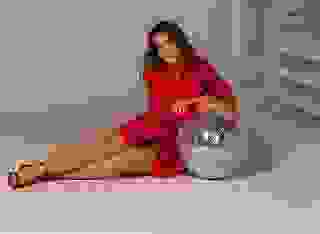- Mature
- Murder on Sixth Street
Note: You can change font size, font face, and turn on dark mode by clicking the "A" icon tab in the Story Info Box.
You can temporarily switch back to a Classic Literotica® experience during our ongoing public Beta testing. Please consider leaving feedback on issues you experience or suggest improvements.
Click hereRon knew it was time to retire after Scotty Pearson was elected as the District Attorney for Warren County. Retiring at sixty would cut his pension some, but he'd still be all right once he sold his house and moved to the cabin he'd bought on Kentucky Lake. He'd bought the cabin when real estate prices were down, and it was paid for, so the only expenses he'd have were insurance, taxes, and something to eat.
If he stayed on, Ron knew he wouldn't be all right. If Scotty did what he'd promised during his campaign, every job in the Bowling Green Police Department was going to change in ways he'd never be able to tolerate. Scottie would take office in a month, and Ron wanted to be gone before that happened.
Scotty was what the asshole called himself, not Scott like a man would have. Scotty was a name people call you when you're five, just like Ron's mother and father and all his other relatives called him Ronny up until his voice changed. After that, it was Ron, or if he was in big trouble, his full name of Ronald Eugene Mathews.
Ron had met Scotty Pearson in court a few times. Scotty had started his career as a public defender. As a patrol officer, Ron had worked his fair share of cases involving drugs and prostitution, and a lot of those defendants had been represented by Scotty.
After the first case went to trial with Scotty as the defense lawyer, Ron knew he didn't like the man. Ron was used to a defense lawyer trying to catch him making two statements that didn't agree in order to discredit his testimony. That was just part of the job. What wasn't part of the job was the way Scotty attacked each witness for the prosecution personally.
The first case where he'd come up against Scotty was the trial of a drug user Ron had arrested when he was a patrol officer. He'd found the guy passed out in the doorway of a beauty salon with the needle still in his arm. The EMT's Ron had called both testified the guy would have died if they hadn't gotten there soon enough and treated the guy with Naloxone.
Scotty didn't attempt to prove the guy hadn't been using or offer any mitigating circumstances. Instead, he attacked Ron's motive for arresting the guy.
"Officer Mathews, what were you doing when you found my client?"
"I was checking out a 911 call about a man passed out a the doorway on Sixth Street. When I got there -"
Scotty had cut him off.
"I didn't ask you what you found. I just asked you what you were doing. Now, who made this 911 call?"
"I don't know because they didn't identify themselves."
"So, based on an anonymous 911 call, you started walking down Sixth Street looking for someone allegedly passed out in a doorway."
"Well, dispatch requested an officer in the area to check it out, so yes, I did."
"Officer Mathews, according to police records, you've arrested forty-two people for drug use over the last year, almost one every week. Is that correct?"
"Yes, if that's what the record says."
"That's the most people you've arrested for any offense this year isn't it?"
Ron had shrugged.
"I suppose it is, but that area's --"
Scotty had cut him off again.
"Officer Mathews, once again, I asked you a simple question that only required a yes or no answer. I didn't ask you for any other information but you seem to want to defend your actions. Could that be because you took it upon yourself to find someone, anyone, to arrest so you'd look like you were doing your job?"
Ron had started to get aggravated then.
"Sir, with all due respect, I was doing my job."
Scotty had smiled.
"I see. Isn't it true that you had a high school friend who died from an overdose of heroin about five years ago?"
"Yes, that's true."
"Isn't it also true that at the funeral, you stated you were going to make a career of getting drug users off the streets?"
"Yes, but --"
"Just a yes or no answer will suffice, Officer Mathews. Now, could it be that you couldn't find anybody else on that street except for my client and decided to arrest him because he happened to appear to be using drugs?"
Ron was mad by then.
"He didn't appear to be using drugs. He had the needle still in his arm and he was passed out cold. His pulse was barely strong enough to feel."
Scotty had looked at the jury, and then back at Ron.
"Was my client endangering anyone else? Remember, all that's required from you is a yes or no answer."
By then, Ron was seething.
"No, Sir, he wasn't."
"Then why did you arrest him?"
"Because using heroin is against the law."
Scotty had smiled a patronizing smile.
"So are running through a red light and speeding. Do you arrest every person you see doing those things? It would seem those things pose a more significant danger to the public than some individual using drugs."
"No, Sir. I work in drug enforcement, not traffic."
"So, Officer Mathews, you admit that you arrested my client only because you suspected he was using drugs even though he wasn't a danger to anyone else, and you arrested him only because of what happened to your friend. Isn't that right?"
The prosecutor had made an objection then.
"Your Honor, Mr. Pearson is putting words in the witness' mouth. Move to strike that last question."
The judge had allowed the objection, and the drug user was convicted in the end, but Scotty had left Ron with the impression he wasn't interested in his clients. Most public defenders would have looked at the evidence and told the guy he should let them get the charges reduced and then plead guilty to shorten the sentence. Scotty was more interested in making the police look like they were out to arrest anybody for any reason they could find, even if that meant his client went to prison for a long time.
Ron wasn't surprised when Scotty revealed his platform. It was no different from what he'd argued as a public defender.
"For too long, we've used our prisons as holding facilities for people who pose no danger to society. Doing so costs the city, county, and state millions every year for trials and more millions to incarcerate people. If this continues, taxes will have to go up, and for what -- there are no studies that show incarceration changes anything. If I'm elected, I'll end the practice of putting people in prison for drug use, prostitution, and other so-called crimes that don't endanger our citizens."
Ron didn't really care if no more junkies and prostitutes went to prison because they weren't the real problem. What Scotty was promising was going aggravate the real problems -- the people who made a living selling drugs and women, and while it might reduce the cost of trials and keeping an offender in jail, the net result would be an increase in crime.
The best source of information about who was dealing drugs came from the drug users the officers arrested and hauled into the station for questioning. They'd usually give up the name of their dealer in exchange for a reduced sentence. That would give the police reasonable cause to arrest the dealer and search his premises for drugs, and if they found anything, the dealer would sometimes be willing to identify his supplier in exchange for a reduction in charges.
Ron had been part of several of these investigations and they had put several major dealers in prison by following the chain. Other dealers had immediately taken over, but at least the situation wasn't getting worse.
Prostitution, per se, wasn't really a criminal problem. It was just a woman exchanging her body for cash and not really much different than Ron exchanging his time for a paycheck. The problem with prostitution was that at least some of those women had been forced into selling their bodies either because their pimps had addicted them to drugs or because they'd been caught up in the sex trade operations of the cartels. Even the women who'd entered the trade willingly found it very difficult to leave, so all prostitutes were basically slaves owned by their pimps.
Those women were too afraid to ever say anything to anybody on their own. If they were arrested and threatened with jail time or deportation, they might decide to give the interrogating detective enough information to fill in some of the blanks in an investigation. Ron knew of two cartel members who were currently in prison because the prostitute he'd arrested for soliciting had been more afraid of being sent back to Columbia than she was of the pimp who bought her from the cartel. Her pimp had been more than happy to give the DA the name of the cartel member in order to get the charges reduced from sex trafficking to pandering.
What was most probably going to happen was drug use would increase because the dealers wouldn't have to worry about a user giving their name when arrested. Sex trafficking would also increase since there would be no prostitutes arrested and therefore little risk of the traffickers being identified.
Ron turned in his paperwork a month ahead of his proposed retirement date. He did this because he knew he'd have to bring another detective up to speed on his open cases. He wasn't expecting to get assigned to another case, but the day after the Captain signed his papers, he walked up to Ron with a file folder in his hand.
"Ron, hate to dump something like this on you the last month before you retire, but I don't have a replacement for you yet, and you know the area and a lot of the people who might know something.
"A couple officers arrested a pimp about a month ago on suspicion of sex trafficking. We got an anonymous tip that two of his girls were Philippine nationals, and when we talked to them, they couldn't produce any ID that proved they were US citizens. You might know him by the name of "Shank". We couldn't hold him because neither of the girls would testify.
"Well, he got himself offed last night. Somebody stabbed him in the gut in the alley behind the pawnshop on Sixth.
"I doubt you'll find anything, 'cause just like when we hauled his ass in, nobody's gonna talk, but if we don't investigate, somebody'll accuse the department of not caring about the whores and addicts down there. See what you can find out.
"God knows you won't have trouble finding suspects. From what I hear, he was an asshole's asshole, always trying to pirate one or two girls from another pimp by promising them more money. Wouldn't surprise me if one of 'em decided enough was enough.
The Captain tossed a folder on Ron's desk.
Here's the officer's and EMT's reports. Walt is still working on the results of his autopsy."
He grinned then.
"Ron, you're one lucky son of a bitch. I'd love to say fuck it all and retire, but with a daughter in college, I gotta stay a while longer. Problem is, it isn't fun anymore and it's gonna get worse."
When the Captain left, Ron opened the folder and started reading. The report by the officer who found the body was about what he expected given the area.
The ten blocks of Sixth Street between Adams and Liberty had been vice central since he was a rookie, and it didn't look like that was going to change anytime in the near future. It was in the older part of what had once been downtown before all the businesses moved out to the malls and suburbs. What was left was a resale shop that operated during the day, a hotel that would have probably been condemned if the Building Commisioner could have convinced somebody to go down and inspect it, three bars, and one pawnshop with heavy steel bars on the windows and door. The rest of the buildings had the windows and doors boarded up with plywood to keep out the junkies and coke heads.
The area was unofficially known in the Bowling Green PD as "Hooker Haven" because when Ron had started patrolling the area, it was where all the hookers in town hung out. Now, there were still hookers, a lot of them, but you could also buy drugs, guns, and about anything else you wanted there if you knew the right person and had enough money. Hooker Haven was the type of place that was going to expand into the surrounding area once Scottie took over the DA's office.
Officer Jim Coztek had been just driving down the alley at about two in the morning watching for some hooker giving a guy a blow job or some kid from the wealthy suburbs buying some grass when his alley lights picked out the guy laying on his back beside a dumpster. He'd radioed in his position and then wisely waited for backup and the EMT's. No officer with a brain would get out of his patrol car alone in that area after dark.
Over the years, Ron had known of two who weren't quite so smart. One had just made routine traffic stop and had been shot four times when he asked the driver for his license and registration. After a three-month stay in the hospital, he left the force.
The other wasn't so lucky. He'd called in a possible drug sale in progress and then tried to arrest the parties involved. When his backup got there, the officer was face down in the alley with a bullet in his chest and another in the back of his head.
Neither crime had been solved. It was like the Captain had said. When something happened in Hooker Haven, everybody was instantly struck blind and deaf. Ron couldn't really blame them for being that way. It was the only way to survive in a jungle ruled by ruthless men who valued life lower than a turd in the gutter.
Once Jim's backup and the EMT's got there, Jim and the other officer cordoned off the area while the EMT's checked to see if the guy was still alive. According to their report, he'd been dead for a while. They couldn't estimate time of death, but his guts were sticking out of the slash across his belly and there was blood all over the place.
That didn't sound like a typical stabbing to Ron, so he walked down to the basement to talk to Walt Myers, the coroner.
Walt smiled when Ron walked into the room.
"Hey, Ron, what brings you down to my dungeon today?"
"I need to know what you found with that guy who got stabbed down in Hooker Haven last night."
Walt frowned.
"No way in hell was he stabbed. Let me get this guy's hood sewed back on and then I'll show you."
When Walt pulled the long, stainless steel tray out of the cooler and then flipped back the sheet, Ron felt his normal twinge of nausea. He always felt that when he saw a body in the morgue, not usually in the field unless it was particularly bloody, but always in the morgue. It was the smell of death that somehow filtered through the disinfectant odor. He'd learned how to fight it back and hadn't puked in a morgue wastebasket in twenty years.
The slit in the guy's belly went from his right side down at an angle and a little past his left groin. Ron could understand why the guy's intestines were hanging out when the EMT's examined him. The guy hadn't been stabbed. He'd been gutted like a butcher would gut a chicken.
"Like I said', said Walt. "He wasn't stabbed. It was one cut from start to end. I had to sew it back closed to keep his intestines from pushing back out."
Ron asked if Walt had any guesses as to the type of weapon used.
Walt shook his head.
"No, nothing I'd hang my hat on. Never seen anything like this in my years in the ER or here. I can tell you one thing though. What ever it was, was sharp enough to shave with. It's as clean a cut as if a surgeon did it with a scalpel. There's no tearing along the cut and no bruising where it started. That was a little on his right side, by the way, just a little above his hip bone. That tells me whoever did it was probably left handed."
"It would take a helluva big knife to do this wouldn't it?"
Walt shook his head.
"No, just the opposite. There was almost no damage to the organs except a few cuts here and there. I'm guessing something like a box cutter or a knife a wood carver would use, but that's just a guess. A box cutter with a new blade would be sharp enough but not long enough to do much more than open him up like this with just one cut."
Ron wrote all that in his notebook, then asked Walt if he had a time of death.
"Well, since his pants were open and half his intestines were hanging out of his belly, he cooled out a lot faster than normal. His liver temperature says he'd been dead about five hours when he got here on my table, but I'm thinking it's more like four."
"His pants were open? You mean down around his knees?"
Walt laughed.
"No, just far enough his dick and balls were hanging out too. I figure he was getting ready to take a piss. There's another thing you need to know too. I think he was probably cut open for a while before he died."
"How do you know that?"
Walt frowned.
"One of those cuts I talked about was to his ileocolic artery. It was almost cut through. It would take the guy a long time to bleed out because that artery isn't all that big. He'd have gone into shock almost immediately so he probably couldn't move, but if he'd gotten to a hospital within an hour or so, they'd probably have been able to save his life. I figure he laid there in that alley for at least three hours before the officer found him. The pictures the techs took of the blood pool pretty much confirm that."
"So, whoever killed him meant to do that?"
Walt shook his head.
"No, I think it was just collateral damage. Most of the ileocolic artery is too high and too deep for a short blade to reach it. That's why most stabbing victims don't die right away. It's hard to hit an artery and even if you do, it takes a long time for a victim to bleed out. The ileocolic artery is only close to the front of the abdomen in one place -- down by the groin and right where the end of the cut was. Most people wouldn't know where to make the cut with a short blade unless they'd had medical training."
"So you think the killer was a pro?"
"I doubt it. The method a pro would use is to stab the guy just under the rib cage with a long, slender blade pushed up and in to reach the aorta and the heart. Just one stab and then a couple flicks of the wrist to slice through one or both, and the victim dies in less than a minute. Pull out the knife and the skin closes and keeps most of the bleeding internal. This was too messy and a pro wouldn't take the chance the guy could get to a hospital and live."
Ron went back to his desk and looked up Paul Mason on the NCIC data base. That was the real name of "Shank" in the folder the Captain had given him.
Shank had a long record of arrests but only one conviction. That conviction was when he was twenty and evidently really dumb. He'd approached an undercover officer and said he had a girl looking for a good time if the officer had enough money. Shank really had no defense since the officer was wearing a wire and recorded the whole conversation. He spent a year in prison for that, and another year after he threatened another inmate with a knife made from a toothbrush and a razor blade. That's where he got the name "Shank".
There were other charges over the years after that -- several for assault and/or battery, even one for attempted murder, but in all cases the victims either wouldn't testify or had some far-fetched excuse for being bloody and bruised. In the case of attempted murder, the only witness agreed to testify, but she disappeared two days before the trial. With no witness, the DA was forced to drop the charges.
The last charge -- sex trafficking -- seemed to be a pretty big step up for Shank, but then, it was becoming more common, or at least more reported. He'd seen younger and younger girls standing at the curb in clothes that barely covered them. Once in a while, they'd run an operation with a couple undercover officers and bring in half a dozen before word got out.
On the last operation, they'd found one who was only seventeen. She told them she was from New York and had come to Bowling Green to get away from her parents. She'd been more than happy to call them after the female officer told her what was likely to happen to her if she stayed on the street. Ron was thankful she'd decided to go home and start over. He hoped it would work out.







